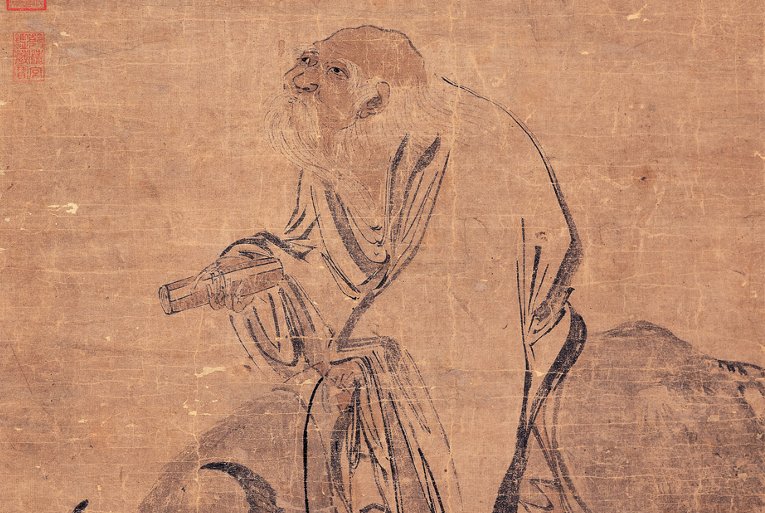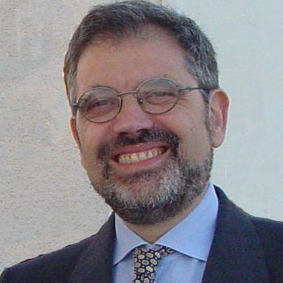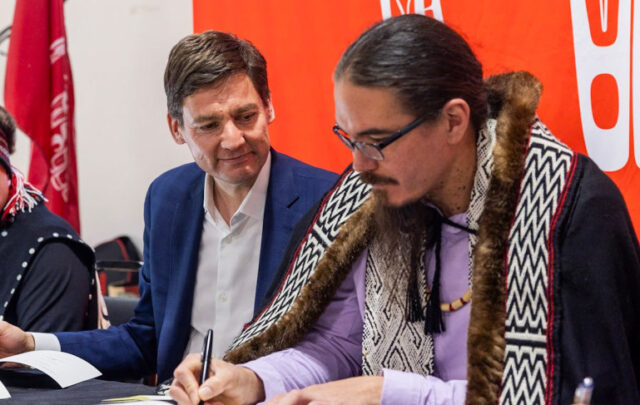It is said that Lao Zi wrote down his “Tao Te Ching” just as an act of kindness for a border guard. He was a true philosopher, a lover of knowledge for the sake of it, and uninterested in worldly things such as money. These virtues, unfortunately, have been lost by modern scientists.
Snubbing off politely put suggestions
Seemed to be unheard of by the old man.
For he said: ‘Those who ask questions deserve answers.’Bertolt Brecht, 1936
This post was inspired by a recent article by Tom Murphy, “Confessions of a Disillusioned Scientist,” where he tells the story of how he discovered that most science is not just useless but an evil force worsening the human situation. So much that he decided to quit. Murphy’s case is not isolated; a feeling of dismay runs through the very fabric of scientific research. Science is just becoming unable to innovate.
My career as a scientist parallels Tom’s experience, even though he is younger than me. I went through a similar crisis in the early 2000s, although I didn’t quit. Rather, I tried to re-orient my research toward something useful for people. I had some success at that, but I, and others who did the same thing, couldn’t reverse the general decline of science. So, let me tell you this story.
Up to the early 2000s, I was a reasonably successful scientist. I was studying high-temperature materials for gas turbines, a complicated field but also one that you can find fascinating. Close to the aerospace industry world, it was not the usual academic babbling; it was about creating real products for real industrial systems. I was leading projects with budgets of a few million dollars. My life was a whirl of international meetings, conferences, reunions, audits, and the like. And I thought I was doing something good for humankind: we were working at making more efficient turbines to save energy and reduce the consumption of fossil fuels.
The first crack in this view of the world arrived for me with the attacks on the Twin Towers in New York in 2001, which told me that there was something deeply wrong with the way the world worked. Maybe a couple of years later, I had another shock when I attended a meeting in Stockholm. At the meeting, we were proudly presenting the results of one of our international projects (*). We had been able to develop a material that improved the efficiency of gas turbines by about 0.5%. You may think this is not such an exciting result, but consider that gas turbines are a mature technology: they are optimized, overoptimized, and hyperoptimized. Even a slight improvement in their efficiency translates into significant financial gains. So, the 3.6 million Euros spent on the project provided a good return on the investment.
That day in Stockholm, I went looking at the panels where other researchers were presenting their results; I was struck by their narrow focus. Most of those top-level scientists were working hard to improve the already overimproved and there was no guarantee that what they were proposing was worth doing. Even our work, yes, it was a good result, but after having improved efficiency by 0.5%, what would we do? Start a new project to improve by 0.05%? The “ceramic engine” was a more radical idea to improve. But it was an old canard that had never materialized and probably never would (it still hasn’t). And some were speaking about the “plane of the future” that would emit zero greenhouse gases. That would imply a few miracles; one was the even older canard of hydrogen that would require completely redesigning the world’s fleet of commercial planes. Not likely to happen soon.
That day, I experienced a minor Seneca collapse inside my mind. As a materials scientist, I was well aware of the mechanism of fracture in engineering. It starts small, then it goes through a tipping point, and it becomes a macroscopic crack that breaks the thing apart, whatever the thing is. What were we doing? What were we working for? Tom Murphy describes the sensation of running a rat race that you feel when you are involved with research grants. You run, you run, you run, but you never get anywhere.
I didn’t decide to quit, as Tom Murphy did, but I gradually lost interest in a research field I felt had no future. So, I tried to re-orient my activity on sustainability and renewable energy. On this point, I was helped by the fact that even the European Union seemed to agree with me, and they reduced their support for the improvement of gas turbines, a task that was by now akin to studying how planes could be powered by hamsters running inside a wheel. I was also helped by being employed by a 2nd rate institution, the University of Florence. Not a bad university, but nothing like the superstar places such as Berkeley or Cambridge. Being stuck in the suburbs of science makes many things more difficult, such as gaining a foothold in the international old-boy networks that manage research financing. But it also allows more freedom, and you can change your research area without receiving too much flak because of the lost revenues for your institution.
In some years of work, I reconfigured my research group to work on sustainability, I attracted a few bright young scientists, and I obtained a few international and local grants. It was not the same financing level I had for the work on turbine engines, but we could sputter on. I gained some international renown in the field of world modeling, and our President made me the managing director of sustainability for the whole University. It was an honor, no doubt, but overall, I soon found it was something like being named supervisor to the royal stables of the Celestial Empire. High-sounding, but not very useful.
Universities are bureaucratic structures whose only purpose is to perpetuate themselves (they are typical social holobionts). I happened to become director of sustainability in a moment of crunch in financing in all fields of scientific research. The result was that everyone was desperately trying to stay afloat; there was no money left for flights of fancy in sustainability. Most of our students also seemed to see the university as akin to a session with the dentist. Something painful they had to go through, but the faster, the better. They liked the idea of sustainability, but they had no time for it.
Those years saw rapid progress in the process of ossification of scientific research that’s still ongoing. We are now in a moment in which it has become nearly impossible to get financing for any research that’s even remotely original or innovative. Then, the screening process of publication is managed by the old aunts of science: the reviewers working for scientific journals. They are engaged in a baroque process of verification that verifies nothing and only makes sure that science does not progress anymore.
The coup de grace to the whole mess arrived with the COVID pandemic that started in 2020. Until then, the university had been a relatively friendly place, open to everyone, and where the door of my office was always open. After the COVID, our department became something akin to Macbeth’s Castle. A scary place where you couldn’t do anything, go anywhere or see anyone without written permission from the department director. Even the lady at the reception, earlier on friendly and smiling, turned herself into a sort of kapo of Hitlerian memory, ready to insult and abuse you if you weren’t wearing your face mask the proper way.
And so I decided to quit. Not that it was a difficult decision. In Italy, we have mandatory retirement rules, so I just anticipated the unavoidable. In a sense, I have to be grateful to the tiny creature called SARS-Cov2 because the disaster it created made me hate my university enough that it was not a shock for me to leave. I am now happy, relaxed, and active. I keep writing scientific papers and books the way I want on the subjects I choose.
But the problems remain. Science has taken such a beating from the COVID story that it may never recover from it. I am continuously encountering people on social media who are completely convinced that all scientists are scammers working for big oil, big pharma, big defense, or the Lizard People from Aldebaran. And because of this, anything that a scientist says is false by definition. Unfortunately, these people are not completely wrong. It is not just ossification that plagues science nowadays; it is also plain, old corruption. The data below are for Nov 2023, from the Pew Research Center. People may not know the details of what’s going on in science, but they understand that something is badly wrong with it.
[Graph and report from Pew Research Center:
“Fewer Americans now say science has had a mostly positive effect on society”
March 2016
Mostly negative: 4%
Equal positive and negative: 27%
Mostly positive: 67%
…
October 2023
Mostly negative: 8%
Equal positive and negative: 34%
Mostly positive: 57%
]
But it is even worse than that: even assuming that all scientists were competent and honest, what is science for, exactly? Tom Murphy describes the situation in these terms: “Our society approves of these institutions and rewards its practitioners, in part based on the misguided notion that this is where solutions to our problems will originate. Instead, science/technology is far more likely to produce the seed corn for another generation of ecological destruction.” And he is basically correct: science doesn’t have a “soul.” Without a soul, it is little more than a zombie that walks clumsily onward in search of brains to devour. Mostly, it is the brains of students and young researchers, but we all risk being devoured by the reckless attitude of scientists. Most of them seem to stop at nothing while trying to gain prestige and money from whatever they can sell to the public as a solution to the problems that they themselves created not long before.
I still think that, eventually, the zombies will not prevail and that the entity we call “science” will find its purpose again by returning to its origins, when it was called philosophy. It means “love for knowledge,” and we could still recover this view. But it will take a long time and probably science will have to go through collapse before it can rebound and return in a new form. It is typical of complex systems. It is the way the universe renovates itself. And if the entire universe does that, it must be because it works well!
_______________________________________________________________
(*) The project I describe here was called ABRANEW. It was supported by the European Union, and ran from 2002 to 2007. You can find plenty of material about it on the Web.






